Ingmar Bergman’s masterpiece, Shame, presents a bleak vision of the effect of war on a married couple, a devastating account of what people are capable to do—and actually do—just in order to survive.
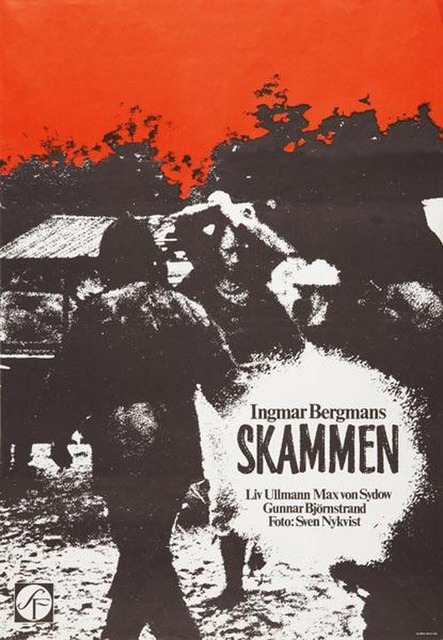
The film explores issues of shame, stress, alienation, self-loathing and pathos through the horrendous tale of a politically unaware couple attempting to flee a war-ravaged (unspecified) European nation.
After a civil war, husband and wife Jan and Eva Rosenberg (Max Von Sydow and Liv Ullmann) decide to move away from society to a farm on a rural island. Their live in isolation, with no communication to the outside world; their radio and telephone do not work.
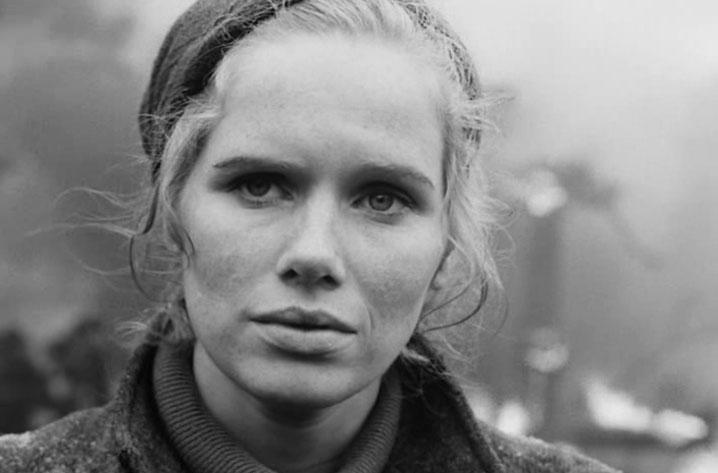
Jan relates her dream, how we were back in the orchestra, sitting side by side, rehearsing the 4th Brandenburg Concerto, the slow movement, and that everything we have now we left behind us. We only remembered it like a nightmare. I woke up crying. I started to cry when we were playing.”
Their relationship gets increasingly more strained and the differences between them become more manifest. Reversing stereotypical notions of gender, Jan is more sensitive and cries frequently, while Eva is more outwardly resilient and irritable.
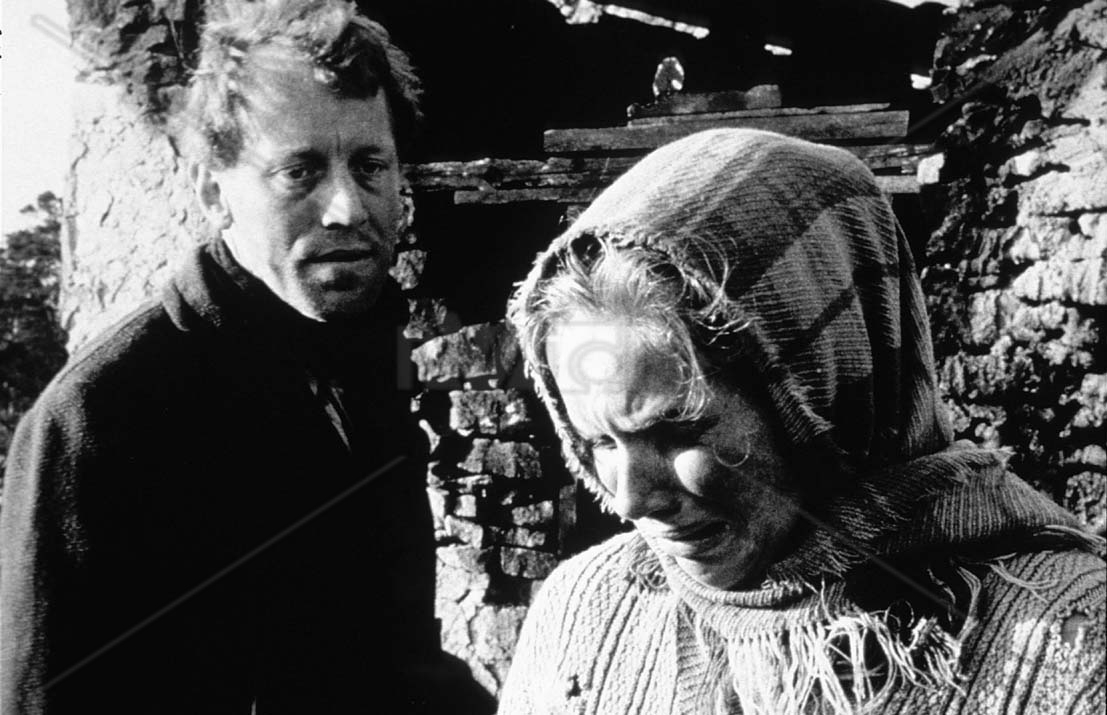
Visiting town, they hear rumors that troops will soon come. The couple visit various friends on this trip, as they procure wine and goods. The last of these meetings is with an older man who has been called to duty.
When they return, their farmhouse becomes the site of a bloody siege, and they are rounded up by the invaders. While the couple is interrogated, they are forced to watch the video of the previous interrogation which uses Eva’s image, which is accompanied by another voice claiming support for the invaders.
Released by Col. Jacobi, they are driven home, and their relationship is weaker and more hostile. Jacobi becomes a regular visitor who treats them with gifts but also has the power to send the couple to a work camp.
Eva and Jan feel irritated and disgusted by the manipulative relationship. Jacobi convinces Eva to provide him with sexual favors in exchange for his savings; it is implied she had slept with him before for some money. They go into the green house to have sex while Jan is resting. He wakes, calling Eva’s name. Eventually, he goes upstairs and finds Jacobi’s savings on the bed.
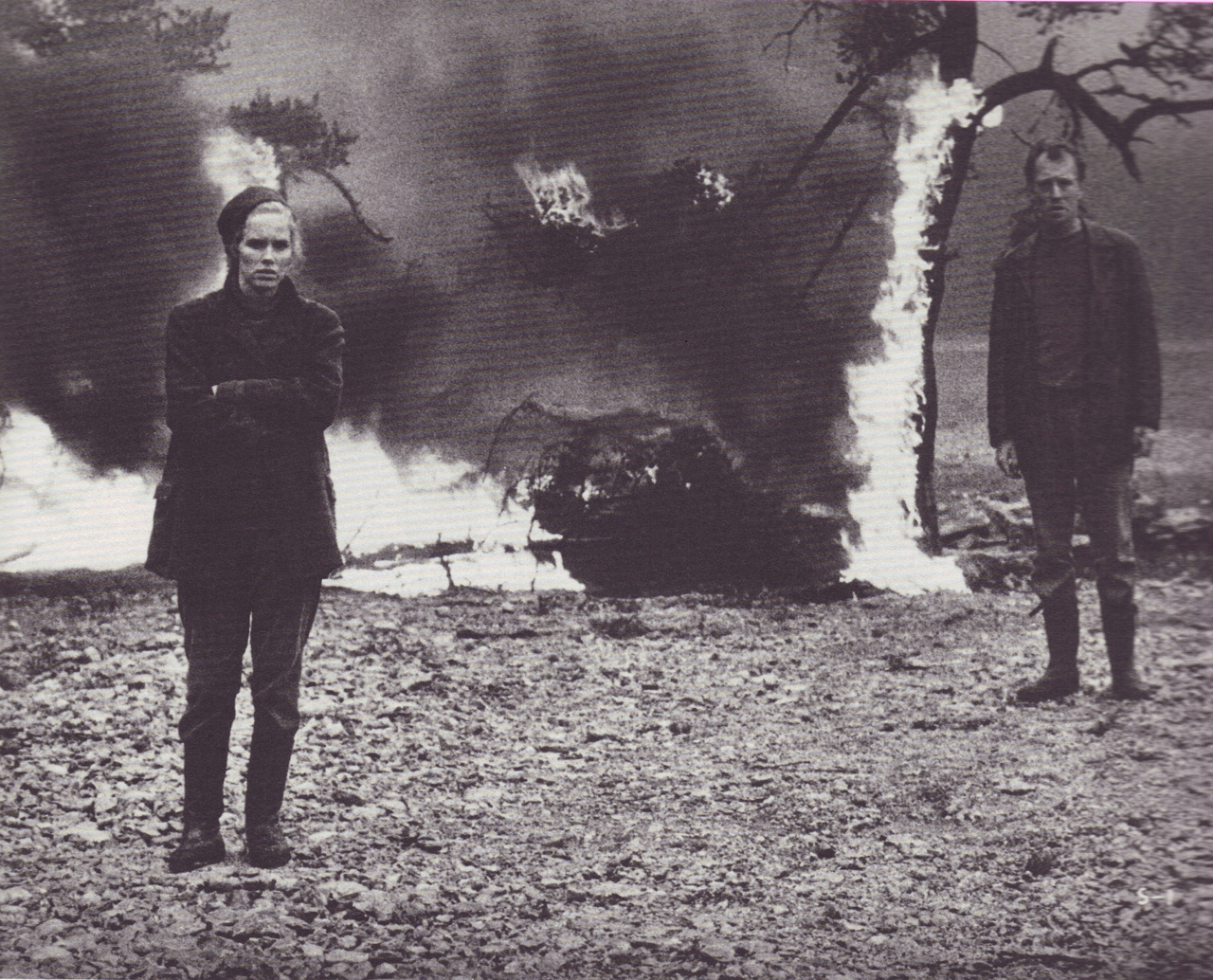
Eva harshly comments to Jan that he can continue sobbing if he feels it will help. Soon after, soldiers lead Jacobi back into the house and investigate his corruption. The couple is also questioned. Jacobi explains his freedom can be bought with money. When the money is not produced, the soldiers raid the house and destroy it. They hand Jan a gun to execute Jacobi and he does, proving that he—and we viewers–can lie and kill, under some circumstances.’
After the soldiers leave, Jan reveals the money in his pocket, to Eva’s disgust, resulting in a bond that’s colder. When Jan and Eva meet a young soldier, Eva wants to feed him, but Jan takes him away to shoot and rob him.
Jan uses the money from Jacobi to buy seats on a fishing boat. While at sea, the boats motor fails, and the man steering the boat kills himself. The boat is stuck amongst floating dead bodies.
The film ends as it began, with Eva telling Jan of a dream, in which she walks down a city street with a shaded park, until planes come and set fire. She and Jan have had a daughter, who she is holding in her arms. They watch the roses burn, which she states wasn’t awful because it was so beautiful. As she lies thirsty in the bottom of the boat, she says: “I knew there was something I should remember. Something one of us had said, but which I had forgotten. I started to cry as I remembered.”
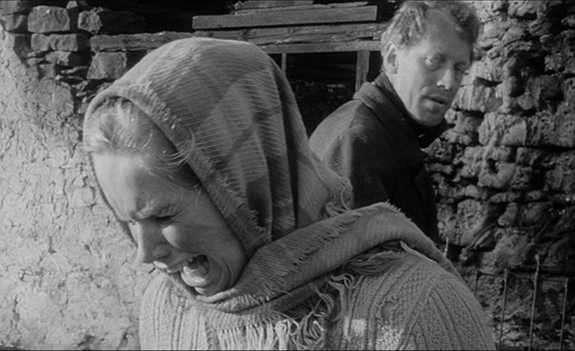
Bergman presentation of war and its impact is shattering, though the most significant moments are those in which the couple are forced to look at each other and then into themselves with bold openness that–under the circumstances–could only result in feelings of disgust and shame.
The film is effective as a parable of what happens when artists and intellectuals become oblivious or insensitive to their immediate political surroundings. The couple in the film are indifferent to war and its conditions up until the moment when it arrives at their own farm.
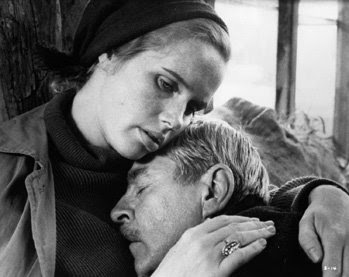
As profound in its ideas as it is disturbing in its characters’ shifting emotions, Shame is an unsettling film from first frame to last, lingering in memory long after the initial viewing experience..
Oscar Context
Shame was Sweden’s entry for the Best Foreign Film Language Oscar, but it did not make the final cut of the five nominees.
Cast
Liv Ullmann–Eva Rosenberg
Max von Sydow–Jan Rosenberg
Sigge Fürst– Filip
Gunnar Björnstrand–Col. Jacobi
Birgitta Valberg – Mrs. Jacobi



